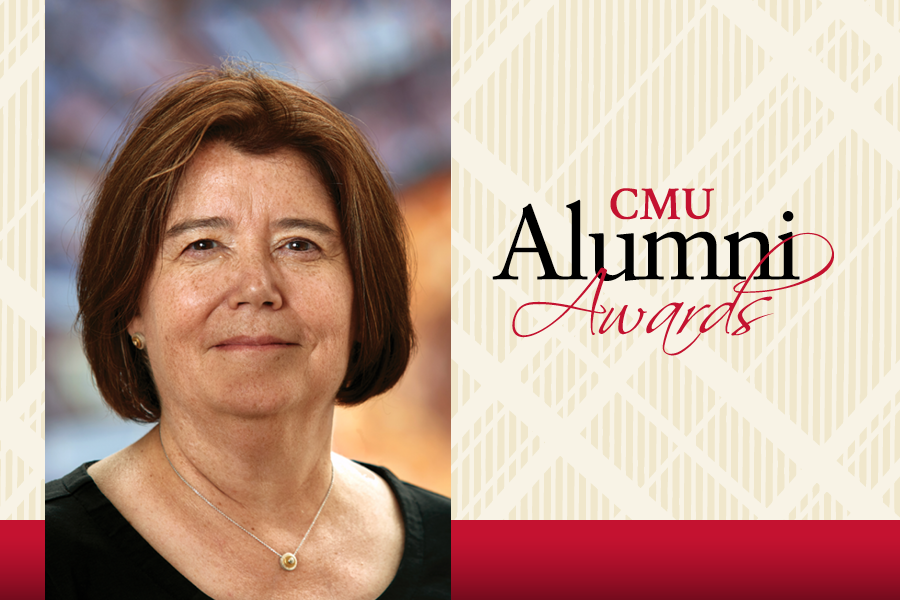
Patricia McBride: 2019 CMU Alumni Award Spotlight
Leading teams to understand the origins of our universe
By Elizabeth Speed
The most basic questions about the origins of the universe are some of the hardest to answer. Uncovering what the universe is made of and how it works requires coordinated efforts from over 4,000 particle physicists, engineers, computer scientists, technicians and students from almost 200 institutes and universities from more than 40 countries. At the center of this complex web is Patricia McBride (S 1977).
As deputy spokesperson for the CMS Collaboration at CERN in Geneva Switzerland, Patty is one of three global leaders managing one of the experiments at the largest and most powerful particle accelerator ever built. The scope of the work is truly staggering.
“My thesis experiment was really quite small, there were only about 8 people on it,” Patty says of her Ph.D. work at Yale University. “Through the course of my career it's changed from small experiments, which you would build and operate for 6 weeks or 6 months, to these installations that you design to last 10 or 20 years. It's very different.”
The deputy spokesperson role is a temporary assignment that lasts until 2020, leading complex efforts using particle detectors that observe protons colliding at nearly the speed of light. Patty manages the teams and resources that previously confirmed the existence of Higgs boson particle, which helps confirm theories about the fundamental forces of the universe.
“It's a management position to oversee the operations and planning for the collaboration,” Patty says. “I have to be familiar with the science outputs, what are the publications that are coming out, and overseeing the operations to make sure the detector is working 24/7 when the accelerator itself is running. We essentially take 3D digital pictures of the collisions, so we have to process that and figure out what the pictures mean.”
After completing her two-year term as deputy spokesperson at CERN, Patty will return to her work at Fermi National Accelerator Laboratory (Fermilab), the Department of Energy’s premier particle physics laboratory. Fermilab is one of the CERN/CMS collaborators, and Patty’s work over the long-term has focused on the immense computing infrastructure necessary to process data coming out of the particle accelerator. She also expects to continue working internationally, another long-term focus of her career thus far.
“We work to make science more inclusive,” she says of organizing efforts with the International Union of Pure and Applied Physics. “We make sure that conferences rotate between regions, not just the US or Europe. And, we make sure there are women represented on committees and speaking at conferences. We weren't trained to be diplomats, but we had to learn how to bring people into an inclusive culture.”
The training that has served Patty started at Carnegie Mellon, where the faculty encouraged her to think at a grander scale. “The faculty were very encouraging to me. I was the only woman in my class in the Physics Department. Arnold Engler encouraged me to apply for a summer lab position at Bell Labs. That gave me the encouragement to think about this as a career, not just a field of study.”
Over her career, Patty’s contributions to organizing the community and tackling technology to interpret data will contribute to an intergenerational, global, greater effort. And it’s work she believes in.
“When you understand more about the early universe, the nature of matter and the fundamental interactions of matter, you have learned something about how the universe works and its fundamental properties,” she says. “It is actually even possible to make some predictions on the possible fate of the universe.”
Patricia McBride received a 2019 Alumni Achievement Award for her extraordinary accomplishments on May 17 during Commencement Weekend. Read more about CMU’s 2019 Alumni Awards and honorees.